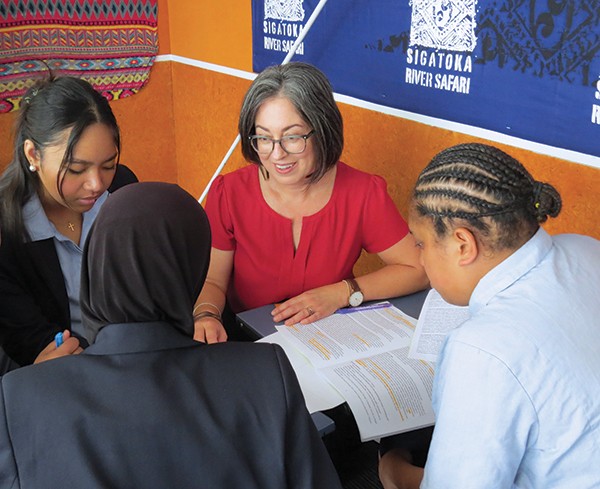One of the 16 recommendations of the recent review of the Child and Youth Wellbeing Strategy was to ‘explore ways of increasing promotion of existing civics and citizenship education resources, and encourage their wider use within the school system and beyond’. This recommendation was in response to feedback from our engagement with children and young people – a key theme was that many of them didn’t know how or why to engage with government, and that they want the opportunity to learn more about civics, their rights to be heard, and how they can participate in creating change.
A recent article in the Education Gazette aims to showcase some of the great teaching and learning that's happening in this area. One Tree Hill College in Auckland and Taita College in Lower Hutt are giving students the tools to interpret their own lived experiences and critique the way things are. They're also looking at how change can come about, and how to take action on issues they care about.
Holly Bodman, a kaiako at One Tree Hill College who leads their civics and citizenship programme, talks about her teaching philosophy and some of the topics they're covering, including SOUL’s campaign to prevent Fletcher Building’s residential housing project at Ihumātao from going ahead, and the Indonesian Government’s military occupation of West Papua.
Michael Harcourt, head of social studies at Taita College, also takes an approach of engaging students in the process of promoting change. Examples include whether the school should have a macron placed on its name (following a determination by The New Zealand Geographic Board, which has been adopted for parts of the area), as well as the debate around lowering the voting age in New Zealand.
